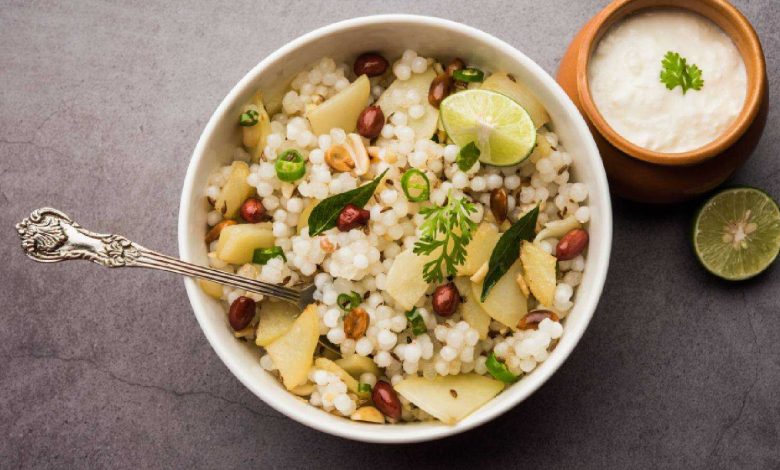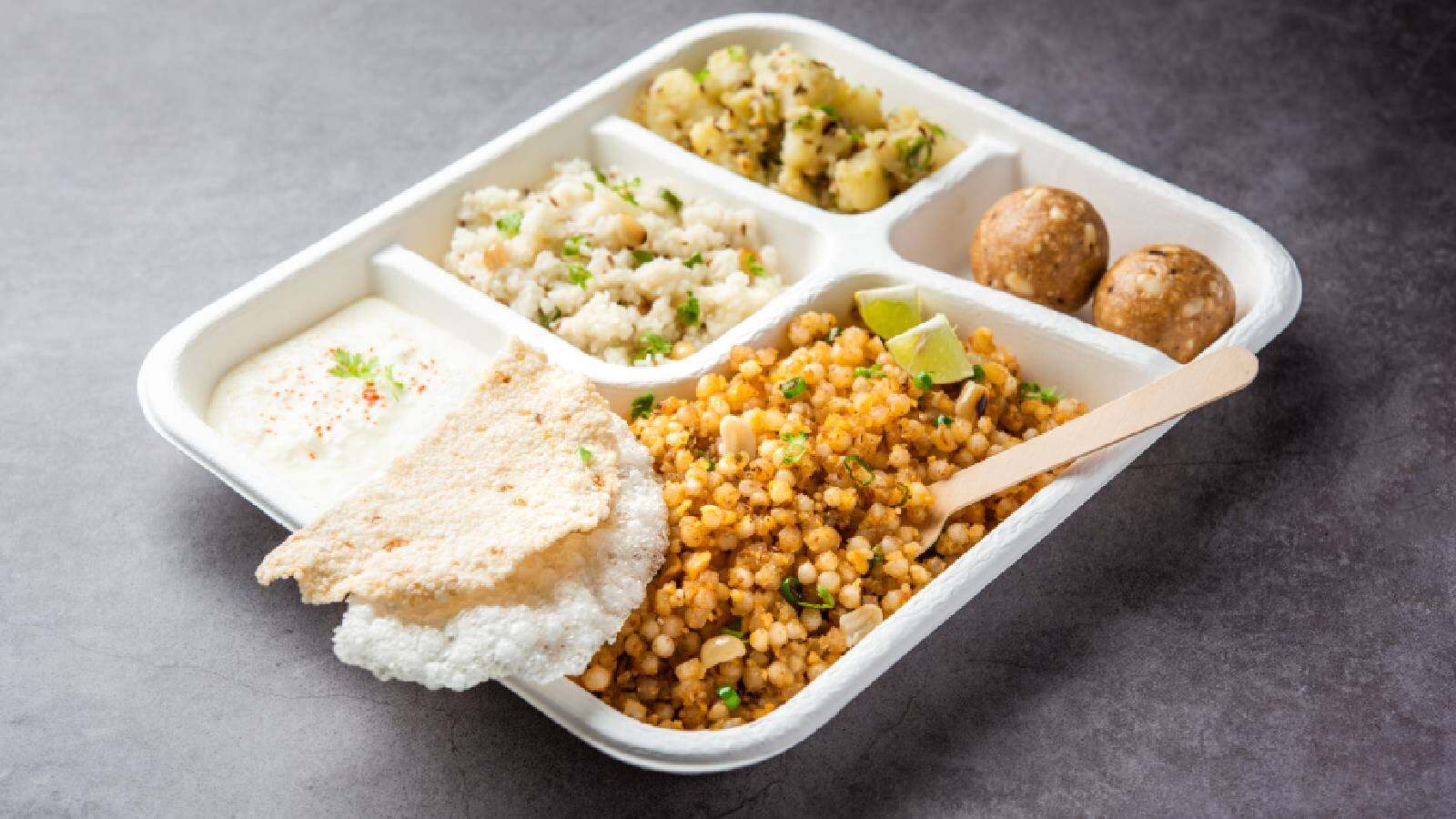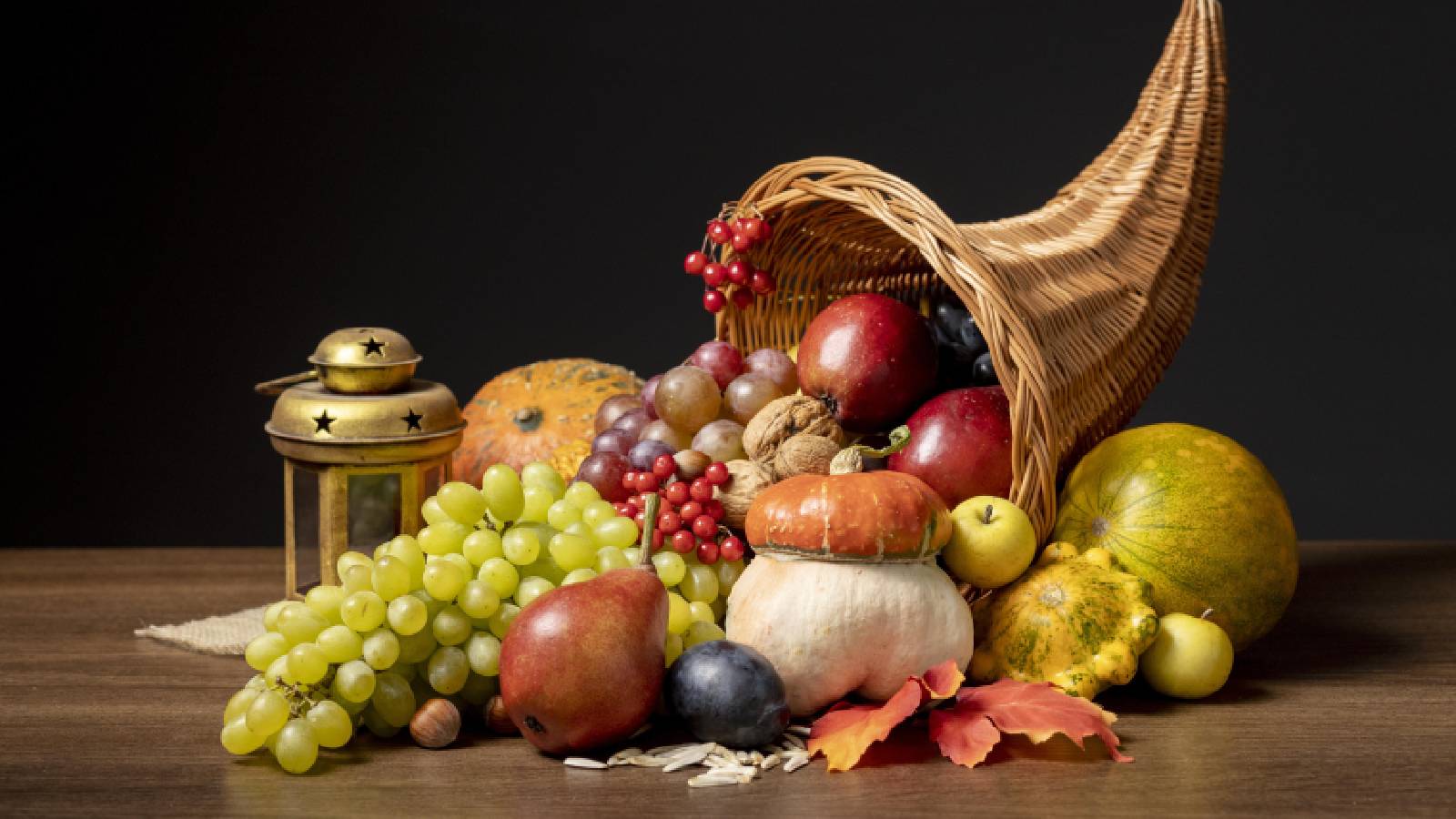
It is possible to lose weight on the Navratri fast as long as you opt for healthier food options. Read on to know how to make this Navratri healthy for you.
While the nine-day fast during Navratri might be an ideal time to lose weight, if you are eating the wrong things, it can even lead to weight gain. Fried foods, “diet-friendly chips” and other snacks that are allowed on this fast, are easy and convenient food options that many of us reach out for. However, it is possible to lose weight during the Navratri fast as well. Choosing the right foods, eating at the right time, getting the appropriate amount of workout, and hydrating yourself well, are some of the ways that you can not only maintain your weight but also shed some kilos. These festive days might provide a great opportunity to detox your body as well. Here is how a Navratri diet plan can help you lose weight.
What does the Navratri fast entail in terms of food?
The nine auspicious days of Navratri are indeed a spiritual way of detoxing and following a clean eating regime, devoid of any fad diets. As you proceed with fasting on these days, it is important that you understand the meaning of fasting and not overindulge when you break the fast.
In terms of food, there are certain inclusions and exclusions, based on your cultural beliefs that can add diversity to your diet, explains dietician Garima Goyal. Adding a variety of local and seasonal foods, that are allowed in your cultural set-up can help you eat clean and even lose weight during these days.
This diet is indeed great for weight loss, says Goyal, adding that common staples such as rice and wheat are not consumed during the fast and other alternatives such as millet, pseudocereals like amaranth, and their flour are incorporated. “You can consume all types of fruits and vegetables in the right proportions and enjoy them. Milk, nuts, dairy, and products like paneer, and khoya are also commonly consumed,” she says.
The Navratri fasting routine ultimately emphasizes eating more homecooked foods and fresh produce and reducing the consumption of ultra-processed foods.
Why do people put on weight during Navratri fast?
Despite various options for healthy foods, many people end up putting on weight during this time. “The most common mistake that can make you gain extra pounds during this time is when fasting turns into feasting,” says Goyal. Many people tend to overindulge when it is time to open their fast. When this is coupled with reduced physical activity, it can easily lead to weight gain. Here are reasons why Navratri fast can lead to weight gain:
1. Overindulgence
People tend to consume more as they break their fast. This binge is most commonly with sweet delicacies and fried pakoras that are calorie-dense. As this munching contains less fibre, you may not feel satiated and tend to eat more.
2. Dehydration
You may confuse thirst with hunger and end up adding more calories to your diet. Ensure to consume adequate liquids during fasting and stay hydrated. A study, published in Frontiers in Nutrition, states that increasing hydration can contribute to weight loss.
3. Losing balance in nutritious foods
In your meals, replace fried food with adequate fruits and vegetables. This will make you feel satiated and also provide your body with adequate vitamins and minerals. The Centre for Disease Control and Prevention, states that the water as well as fibre content in fruits and vegetables add volume, and help you stay full with fewer calories.
4. Indulgence in outside foods
Consuming outside foods during your fast, such as pakoras and other fried items, on all the days of fasting, can lead to weight gain. Instead, you can include them by cooking at home, where you can check the quantity and quality of the oil used.
5. Consuming high-calorie beverages
Fasting can be tough and people end up including drinks like sweetened fruit juices, milkshakes, and sugary lassis during Navratri. These beverages can be calorie-dense and contribute to weight gain if consumed in large quantities.

How to lose weight during the Navratri fast?
Weight loss during Navratri fasting is possible. With little navigation of your daily meal plates, you can easily achieve your goal.
1. Eat smaller meals
Instead of consuming large meals with long intervals, consume small and frequent meals. This will help you prevent overeating and also reduce your overall calorie intake. A study, published in Nutrients, states that there is an association between reduced meal frequency and an irregular eating approach with weight gain.
2. Eat fibre-rich foods
The Navratri diet includes fruits and vegetables, and this is what is the secret to losing weight during this time. Ensure to consume adequate fibre in your diet. This will keep you full for a longer time and prevent you from overeating. Adding a variety of fruits and vegetables is ideal to meet the requirements. Check out why fibre is important for your overall well-being, and how it contributes to weight loss.
3. Drink water and other healthy beverages
Always stay hydrated during your fast. Dehydration, again can make you binge on unhealthy snacks. Also, be cautious about how you hydrate, choosing calorie-dense carbonated beverages is going to increase your overall calorie intake. Instead, you can consume beverages such as infused water, tender coconut water, lemonade, thin buttermilk, etc. Check out some other tips for a healthy Navratri fast.
4. Cook the right way
Choosing your cooking methods wisely is essential during the Navratri fast. Instead of deep frying, you can opt for shallow frying or baking. This will reduce the fat intake and help you lose weight.
5. Make healthy choices
Focus on making healthy swaps during your meals. You may be used to fried pakoras or other high-calorie snacks. However, choose healthy and nutrient-dense dishes. You can switch to makhana roast, boiled chana salad, yoghurt with berries, moong sprouts salad, rajgira chikki, flavoured lassi, samak rice, and nuts. Check out some healthy Navratri foods, and the way to include them in your diet.
6. Get moving
Ensure to exercise regularly even during this time. Light exercise such as walking, yoga, or simple at-home workouts can help burn calories and keep your metabolism up during fasting.
7. Be mindful
Make sure to engage in mindful eating. Use smaller plates to be conscious about the food you are consuming and avoid any distractions while consuming food can help keep your weight in check.
Foods to avoid during the Navratri fast
If you are looking to lose weight, then these are some food choices which you must avoid.
• Fried foods – vadas, pakoras, puri, fried potatoes, etc
• Sugary beverages
• Sweets and other delicacies
• Packed snacks like namkeen and chips
• Starch-based food like sweet potatoes and tapioca can be consumed in smaller portions and not excessively.
• Ultra-processed foods like chips, biscuits, pastries etc.

How many calories should one consume per day while fasting during Navratri?
There is no set calorie intake that would suit everyone. Each of us is different and based on your age, gender, height, weight, and body composition and also if any disease condition is present your calorie requirement is going to differ. “The mantra for weight loss would be going on a “calorie deficit” diet. That is eating fewer calories than spending. This can be determined based on the above factors with the help of your dietitian,” says Goyal.
How can you detox your body during the Navratri fast?
The ultimate goal of detoxification can be achieved through fasting itself and following the above steps like staying hydrated, consuming adequate fibre, and adding nutrient-rich fruits, vegetables, and spices will help in overall enrichment. Again, there isn’t any one set superfood that will help in purifying your body, rather a balanced diet with a fast, can help in improving your gut health and make you feel more rejuvenated and energised, explains Goyal. Remember to prioritise your health, listen to your body, and seek professional guidance when needed to ensure a safe and effective detox journey.
Source: healthshots





